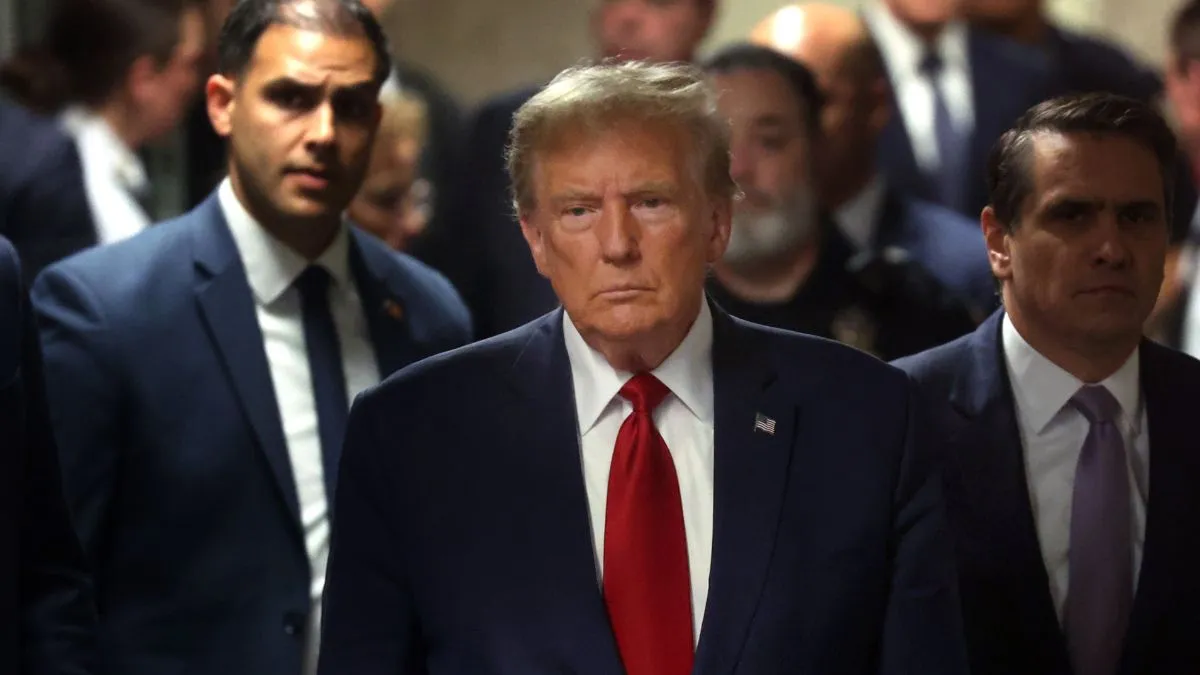In the realm of American politics, few figures have divided opinions and ignited controversies as fervently as Donald Trump. While his presidency might have come to an end, his influence on the political landscape persists, particularly within the realm of Christian support—a phenomenon that continues to confound many observers.
One of the most perplexing aspects of Trump’s relationship with conservative Christianity is the stark dissonance between his personal conduct and the values espoused by the faith he claims to uphold. For a man who boasts of his Christian beliefs, Trump’s track record is riddled with behavior that seems antithetical to the teachings of Christianity.
From his multiple marriages and alleged infidelities to his reputation for greed and dishonesty, Trump embodies a litany of sins that would make even the most lenient moralist blanch. His penchant for boasting and his thin-skinned reactions to criticism speak to a prideful and wrathful nature. Moreover, reports of his slothful habits, such as waking up late to watch television, further challenge the image of a devout and disciplined leader.
Yet, despite these glaring contradictions, Trump has managed to cultivate a dedicated following among certain segments of the Christian community, particularly among the rural religious right. This support, driven by a blend of political expediency and cultural affinity, has provided Trump with a platform to advance his agenda and tap into a lucrative market of devoted followers.
A recent example of this symbiotic relationship between Trump and his Christian base comes in the form of his endorsement of a $60 Bible produced by country singer and Republican stalwart Lee Greenwood. The “God Bless the USA Bible,” as it’s called, seeks to capitalize on patriotic sentiment by including reproductions of iconic American political and legal texts alongside the Scriptures.
While Trump’s endorsement of this Bible might seem like a natural fit, given his professed faith and nationalist rhetoric, it also highlights the irony of his association with religious symbols and values. Despite his claims of reverence for the Bible, Trump’s actions often betray a shallow understanding of its teachings, if not outright disregard for its moral precepts.
In a recent video posted to his social media platform, Trump reiterated his commitment to restoring religion in America, framing it as a means to reclaim greatness for the nation. However, his message was laced with familiar themes of victimhood and division, as he warned of Christians under siege and urged his followers to resist perceived censorship and discrimination.
Ironically, even as Trump seeks to position himself as a defender of religious freedom, he finds himself entangled in legal battles that raise questions about his own adherence to ethical standards. Charges of falsifying business records and hush money payments to adult film stars underscore the moral ambiguity that pervades Trump’s personal and professional life.
In the end, the paradox of Trumpian Christianity reflects a broader tension within American society—a clash between professed values and political expediency, between faith and power. As Trump continues to wield influence within the Republican Party and beyond, the enduring question remains: Can one truly reconcile the teachings of Christianity with the actions of its most prominent champion? Only time will tell.


